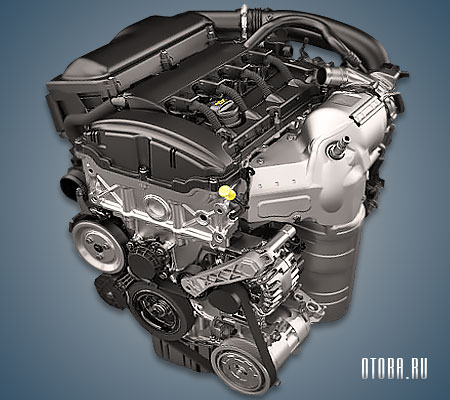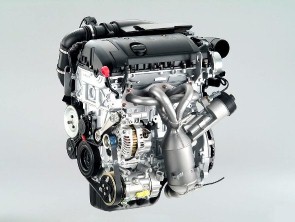Navigating The 1.6 THP 156 CV Engine: Performance, Reliability, And Owner Insights
The automotive world is full of engines that leave a lasting impression, for better or worse. Among them, the 1.6 THP (Turbo High Pressure) engine stands out as a particularly interesting case. This engine, a collaborative effort, has found its way into a diverse range of vehicles from prominent manufacturers like Peugeot, Citroën, Mini, and BMW. Renowned for its impressive combination of high power output, fuel efficiency, and reduced emissions, it quickly garnered attention. However, like many complex pieces of engineering, it also comes with its share of discussions regarding reliability. In this article, we'll delve deep into the 1.6 THP, specifically focusing on the 156 CV variant, exploring its performance, common issues, and what real-world owners and experts have to say.
A Closer Look at the 1.6 THP Engine Family
The 1.6 THP engine is more than just a single unit; it's a family of engines with various power outputs and subtle differences. Its journey began with a promise of advanced technology and efficiency.
The Award-Winning Legacy
Despite some of the controversies surrounding its reliability, it's crucial to acknowledge the 1.6 THP's significant achievements. This engine was designed to offer impressive power, and its technological advancements were recognized globally. It notably received eight consecutive International Engine of the Year awards in the 1.4 to 1.8-liter category. This speaks volumes about its innovative design and capabilities at the time of its introduction.
Variants and Nomenclatures
The 1.6 THP engine has been produced in several modifications, each identified by specific internal codes and power outputs. For instance, the 1.6-liter turbo Peugeot EP6CDT or THP 16V 156 engine was introduced in 2009 and became a staple in almost all mass-produced models from the French company. We've seen variants like:
- 5fa for 125 CV
- 5fn for 150 CV
- 5fv for 156 CV (which is the focus of our discussion)
- 163 CV (EP6CDTM, often considered less problematic than the 156 CV variant)
- 200 CV
- 225 CV (as seen in the newer PureTech variant with EAT8 automatic transmission)
- 270 CV
In certain markets, like Argentina, the nomenclatures often revolve around the horsepower figures rather than the specific EP codes. Here, the 156 CV, 200 CV, and 270 CV variants were sold, with the 156 CV being the most common among the three. It's the EP6DT/DTS designation that often corresponds to the 156 CV engine, which some sources point to as being "problematic," while the 163 CV (EP6CDTM) is generally regarded as more robust.
Performance and Driving Dynamics: The 156 CV Experience
Beyond the technical specifications, what is it like to drive a car equipped with the 1.6 THP 156 CV engine? Owners and experts often highlight its spirited nature.
Power Delivery and Thrill
The 1.6 THP 156 CV engine truly comes alive in the mid to high RPM range. According to enthusiasts, it's "between 3,000 rpm and 7,000 rpm when this engine offers its best performance." The tachometer needle moves rapidly, and the "thrust of the engine is sensational." It delivers its maximum power of 156 CV at 6,000 rpm, ensuring a lively driving experience. This makes it an "ideal option for petrol lovers due to its performance, response, and consumption."
For example, in the Citroën DS3 1.6 THP 156 CV, the engine provides excellent performance. Similarly, in the Peugeot 308 1.6 THP 156 CV 5p Premium, users and experts praise its dynamic capabilities, noting that "dynamically, Peugeot has taken an important step forward with the 308." The engine's power translates into solid real-world figures: it accelerates from 0 to 100 km/h in 8.7 seconds and can reach a top speed of 208 km/h.
Fuel Efficiency and Smoothness
Despite its performance orientation, the 1.6 THP 156 CV can also be reasonably efficient. On the open road, it achieves commendable fuel consumption figures, around 6.2 liters per 100 kilometers at 120 km/h, which is "not bad at all." In city driving, it naturally consumes more, needing about 9 liters per 100 kilometers. While some older variants might have had oil consumption issues, newer or well-maintained THP engines, like the 205 CV variant, are reported to have "no oil consumption more than a perfectly acceptable minimum, especially during break-in." Overall, the engine is described as smooth and responsive, making it a pleasant companion for daily driving and longer trips.
Addressing the Elephant in the Room: 1.6 THP Reliability Concerns
The 1.6 THP engine, despite its accolades and performance, has unfortunately gained a reputation for certain reliability issues. It's a "known acquaintance" in the market, particularly in places like Argentina, where its problems are frequently discussed.
The "Problematic" 156 CV and Its Nuances
It's widely acknowledged that "the 156cv is problematic (ep6dt/dts)," while "the 163cv (ep6cdtm) is not so much." This distinction is crucial for potential buyers. Common issues associated with the earlier 156 CV variants often involve timing chain wear, carbon buildup, and high oil consumption, among others. These issues have led to numerous discussions on forums and among mechanics.
The "Truth of the Matter": Maintenance is Key
However, many experts and experienced owners emphasize that a significant portion of these problems can be attributed to inadequate maintenance rather than inherent design flaws. As one Peugeot spare parts worker put it, "The truth of the matter with that engine is what you put inside." This statement highlights the critical role of proper care.
Specific recommendations for maintaining the 1.6 THP engine include:
- High-Quality Fuel: Always use "first-class gasoline." Inferior fuel can lead to carbon buildup and other issues.
- Correct Engine Oil: The choice of engine oil is paramount. Using "Total Ineo 0w30 oil" or an equivalent high-quality synthetic oil is strongly recommended. The "myth of 'thpum' (engine failure) is completely false if you use good oil. If you put oil from any old lube shop, yes, it will get ruined." This underscores that cutting corners on oil quality is a direct path to problems.
- Regular Servicing: Adhering to the manufacturer's service schedule, including timely oil changes and checks, is vital.
With diligent maintenance, many owners report trouble-free experiences. For instance, an owner of a 205 CV THP variant stated, "no problems in 6 years (although I've driven few kms, to be honest)." This suggests that while mileage might play a role, proper care is the dominant factor.
User Experiences: A Mixed Bag
Opinions on the 1.6 THP are diverse. While some owners have faced significant issues, others have had positive experiences. For comparison, the VTI 1.6 120 CV gasoline engine is praised for running "like silk," with one owner reporting "very happy with it, approaching 100,000 kms" and no problems. This contrasts with the "many problems" heard about earlier 155 CV or 125 CV versions of the THP.
When considering a used vehicle with this engine, caution is advised. For example, a Citroën DS5 1.6 THP 155 CV from 2012 with 135,000 km, while "beautiful," might have "inherited all the failures that are mentioned." A thorough pre-purchase inspection by a specialist familiar with THP engines is highly recommended to identify any existing or potential issues.
Real-World Opinions: What Owners and Experts Say
Let's look at some specific models and the feedback from their owners and experts.
Peugeot 5008 1.6 THP 156 CV
For the Peugeot 5008 1.6 THP 156 CV (year 2010), one opinion suggests it's an "awesome purchase" if you don't plan on high annual mileage. Users and experts on platforms like motor.es provide their evaluations and are available to answer doubts about this model. The 5008 is generally considered a "vehicle more appropriate for family trips than for all-terrain adventures," making the THP engine suitable for its intended purpose.
Peugeot 308 1.6 THP 156 CV 5p Premium
The Peugeot 308 1.6 THP 156 CV 5p Premium has garnered significant attention. Both experts and users have shared their opinions and comments, often highlighting the engine's strong performance and the car's improved dynamics. The combination of the responsive THP engine and the 308's chassis makes for an engaging drive.
Citroën DS3 1.6 THP 156 CV
The Citroën DS3 with the 1.6 THP 156 CV gasoline engine is often cited as an "ideal option for lovers of gasoline engines due to its performance, response, and consumption." Initial reviews and tests of this model often detailed everything about the engine, its performance, behavior, and fuel consumption, reinforcing its appeal to those seeking a spirited driving experience in a compact package.
Conclusion
The 1.6 THP 156 CV engine is a fascinating case study in automotive engineering. It represents a period of significant technological advancement, delivering impressive power, efficiency, and a dynamic driving experience that earned it multiple international awards. Its presence across a wide range of popular models from Peugeot, Citroën, Mini, and BMW speaks to its versatility and initial promise.
However, its reputation is undeniably complex. While some variants, particularly the 156 CV (EP6DT/DTS), have been associated with reliability concerns, the consensus among those deeply familiar with the engine points to a crucial factor: maintenance. The "truth of the matter" is that with premium fuel and, most importantly, the correct, high-quality engine oil like Total Ineo 0w30, many of the notorious "problems" can be mitigated or avoided entirely. Owners of well-maintained THP engines, even those with higher mileage, often report satisfactory performance with minimal issues.
For prospective buyers of a used vehicle equipped with this engine, a thorough inspection and an understanding of its service history are paramount. While it might carry a cautionary tale, a well-cared-for 1.6 THP 156 CV can still offer a rewarding blend of performance and efficiency. It's an engine that, despite its challenges, remains a significant and "known acquaintance" in the automotive landscape, proving that proper care is often the key to unlocking its full potential.
- Kevin Hart Bank Heist
- Sofia Richie Plastic Surgery
- Linkin Park Merchandise
- Hot Ebony Chicks
- Timber Tavern
Peugeot RCZ 1.6 THP 156 CV, prueba (parte I)

EP6CDT - двигатель Peugeot 1.6 THP 16V 156 | Otoba.ru

Pežo 1.6 THP/VTi/Bmw 1.6 N43 motor – Istorija motora - MLFREE